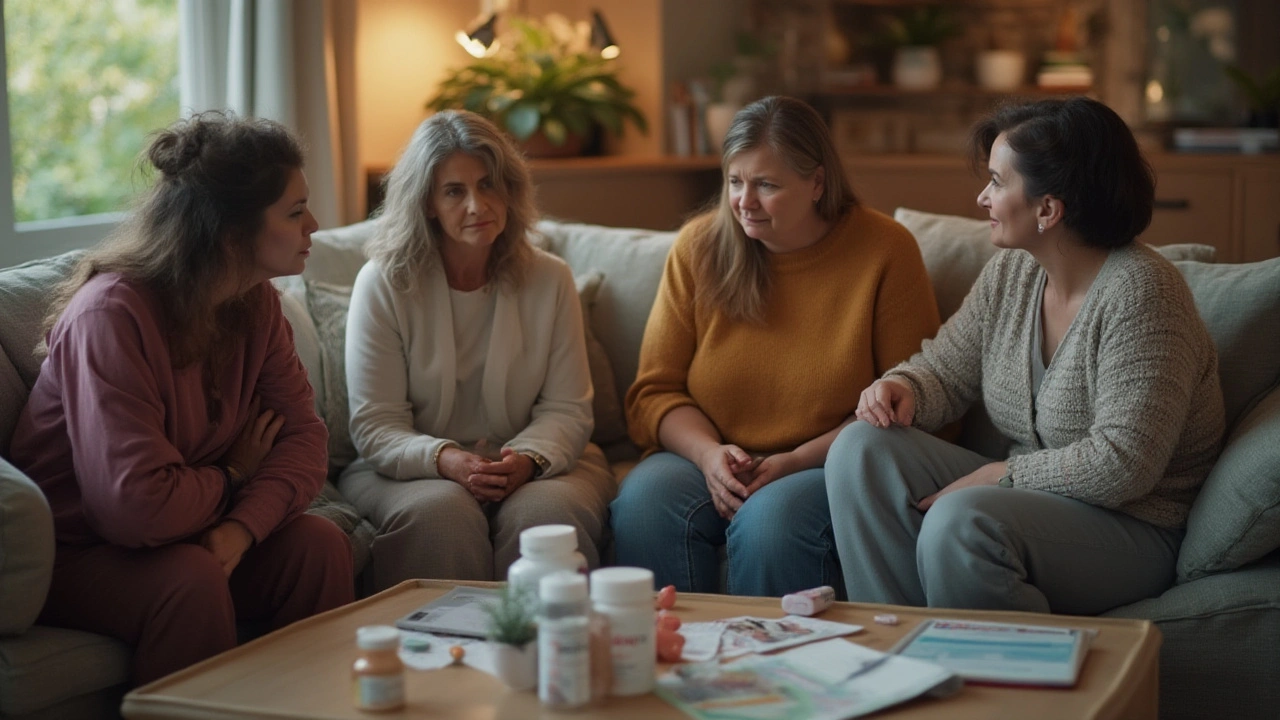Menopause: Real Solutions for Navigating the Change
The topic of menopause usually brings up one big question—what now? This stage happens to every woman, but there’s still tons of confusion and misinformation. One thing’s for sure: you don’t have to just "deal with it" and hope for the best. There are real, practical steps for handling symptoms, staying healthy, and making this transition less overwhelming.
The first sign most women notice is the change in their period. Maybe cycles become unpredictable or suddenly stop. Hot flashes aren’t just a joke—up to 75% of women get them, and they can hit day or night. Night sweats, trouble sleeping, mood swings, and even shifts in memory and focus are common too. That’s not a full checklist; everyone’s experience is a bit different, so don’t freak out if your symptoms don’t match your friends’.
So, what actually helps? Hormone therapy is one option. It’s not for everyone, and it’s worth talking about the real pros and cons with a doctor you trust. Small doses can take care of hot flashes and night sweats, but they aren’t risk-free (increased clot risk, for example). If you don’t want hormones, there’s good news—lifestyle tweaks make a legit difference. Light exercise, cutting back on caffeine, and building a solid sleep routine can reduce symptoms more than you think. Even small things, like layering up so you can quickly cool down, are genuinely helpful.
What about diet? Some women get relief from including more plant-based foods rich in phytoestrogens—think flaxseed, tofu, or soy. There’s no magic food that erases hot flashes, but researchers have found people who eat more fiber and fewer processed foods tend to have fewer symptoms. Also, staying hydrated makes a real impact on mood and headaches.
Mood shifts can sneak up, even for women who never struggled with mental health. It’s not just hormones, but also stress, disrupted sleep, and the whole "life in transition" feeling. If anxiety or sadness stick around, finding a counselor who gets menopause is a smart move. There are also non-hormonal medications that can help if mood changes are intense or if sleep is a nightmare.
A lot of women struggle with talking openly about menopause—either they feel embarrassed or worry they’re just supposed to push through. That’s where support helps. Honest conversations with friends or even online communities are huge. There’s no reason to go through any of this in silence, especially with so many tools and resources available.
One newer trend is personalized medicine—compounding pharmacies now offer customized treatments. If you’ve tried different options and nothing works, these places can mix medication to fit your body’s needs. It’s not a quick fix, but for tough symptoms, it’s worth asking a provider about.
No one can "cure" menopause, but it’s possible to make the journey easier, healthier, and less stressful. The right mix of medical advice, lifestyle adjustments, and support can empower you in this new phase. If you’re tired of hearing jokes about hot flashes and just want real answers, you’re in the right place.
Menopause Medication: Pharmaceutical Treatments, Benefits, and Risks
- Lorcan Sterling
- 0 Comments
Explore how pharmaceuticals shape menopause care—what works, what doesn’t, and the unexpected facts behind menopause medications, costs, and real risks.
Read more

